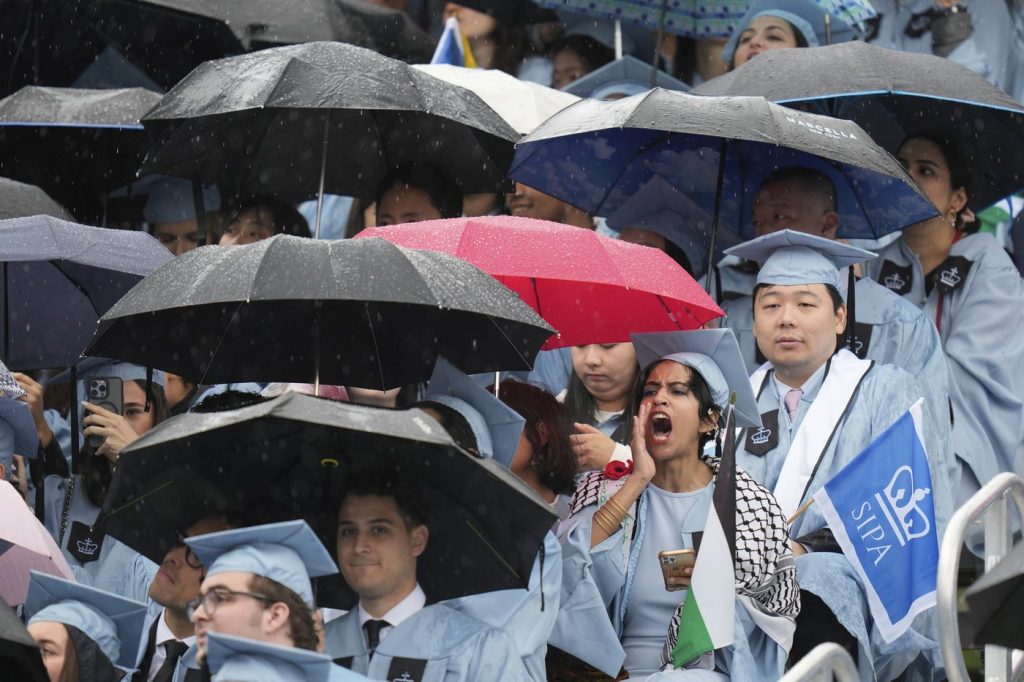NEW YORK (AP) – During a recent commencement ceremony at Columbia University, acting president Claire Shipman addressed the absence of Mahmoud Khalil, a student activist who was supposed to receive his diploma. Khalil is currently detained in a Louisiana jail facing deportation due to his active participation in pro-Palestinian protests on campus. His situation has sparked significant attention and controversy within the university community, especially as it coincides with broader concerns about federal immigration policy under the Trump administration.
While acknowledging Khalil’s absence, Shipman’s address was met with loud boos and chants of "free Palestine" from some of the graduating students. Many attendees displayed their disapproval not only of Khalil's detention but also of the university administration's response to the federal government's stance on international students’ rights. Shipman voiced support for international students, stating, "We firmly believe that our international students have the same rights to freedom of speech as everyone else and they should not be targeted by the government for exercising this right." She also expressed awareness of the community's mourning for Khalil.
Khalil, who was enrolled in Columbia's international affairs program, has been in custody since March 8, when immigration agents apprehended him at his off-campus apartment in Manhattan. His detention has been notably distressing, as it coincided with the birth of his first child, a milestone he missed due to his incarceration.
As Shipman continued her speech, some students chose to walk out in protest, while others manifested their dissent through jeering and booing. The acting president, who took office in late March, previously experienced similar hostility during a smaller graduation ceremony held the day before the main event. This reaction from students and faculty highlights a growing discontent towards the university's leadership and their perceived acquiescence to the policies of the Trump administration, especially regarding the treatment of foreign students.
Federal authorities have not charged Khalil with any criminal activity; however, they are pursuing his deportation, alleging that his involvement in protests against Israel's actions in Gaza may have negatively impacted U.S. foreign policy interests. This situation has raised alarms among faculty and students at Columbia, prompting accusations that the university is failing to adequately protect its international student body in light of increasing enforcement actions from federal authorities.
On May 21, 2025, during the commencement ceremony, students and alumni responded to the event with acts of protest that included burning diplomas and wearing keffiyeh scarves in solidarity with Khalil and the broader pro-Palestinian movement. These demonstrations underscore a significant rift within the university community regarding free speech, academic freedom, and the rights of international students amidst a politically charged environment.
The unfolding situation surrounding Mahmoud Khalil represents not only a personal tragedy for him and his family but also a microcosm of the tensions between governmental immigration policies and the academic environment dedicated to free expression and social justice. The actions taken by Columbia's administration and the responses from its community will likely continue to evolve as these contentious issues unfold in the coming years.











